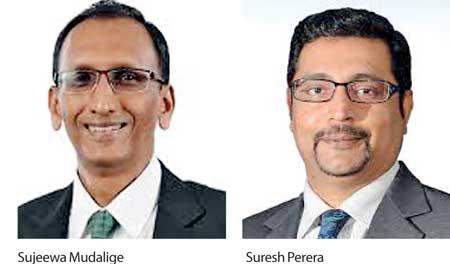Reply To:
Name - Reply Comment
As the country’s tax system is undergoing a complete overhaul to ensure that the government raises adequate revenues to ensure its fiscal deficits are kept at a sustainable level, the financial and tax experts are calling for the removal of a wide range of exemptions from the Value Added Tax (VAT), which is deemed as a distortion.
 As Sri Lanka twice raised the VAT rate to 15 percent, from 8 percent, within the last three months, PwC Sri Lanka Managing Partner Sujeewa Mudalige recently proposed to remove the VAT exemptions granted to all other sectors barring health, education and a few essential food items to achieve the desired revenue and other objectives of the VAT system.
As Sri Lanka twice raised the VAT rate to 15 percent, from 8 percent, within the last three months, PwC Sri Lanka Managing Partner Sujeewa Mudalige recently proposed to remove the VAT exemptions granted to all other sectors barring health, education and a few essential food items to achieve the desired revenue and other objectives of the VAT system.
In a social media post, he pointed out that at present, hundreds of items enjoy the VAT exempted status.
Weighing in on the proposal, KPMG Sri Lanka Principal for Tax Suresh Perera underscored why the exemptions must be avoided to ensure the VAT system to work properly.
He showed that the exemptions affect the accurate computation of value addition at every level of the value chain and thereby introduce a cascading effect, which the VAT attempts to avoid by replacing the turnover taxes.
However, having twice doing away with the turnover taxes in 1998 and 2019, the government again introduced what it called the Social Security Contribution (SSC) levy, a turnover tax, reintroducing the policy contradiction in Sri Lanka’s tax regime, where both the value addition and turnover are taxed at the same time.
“For mechanism of tax on value addition to be (a) success, it is crucial that there should not be a break along the supply chain until the final consumer,” Perera said in a social media post, as such brakes along the supply chain brings back the cascading effect.
“Hence, all/most of the activities in a country should be subject to VAT,” he added.
“The number of exemptions provided by New Zealand and Singapore, which are considered the best examples for countries that use ‘tax on value addition’ under the term (GST) for collection of indirect taxes, are in single digits such as provision of financial services, sale and lease of residential properties as well as import and local supply of investment precious metals,” Perera further said.
He pointed out that the ignorance of the policymakers in designing the VAT policies and the power of lobby groups in Sri Lanka have contributed to the increase in exempted items every year since 1998 to over 130 items as of today.
Sri Lanka in 1998 ended the cascading turnover taxing and introduced value addition taxing, only to see it reintroduced in 2009 in the form of a Nation Building Tax, until it was rescinded in 2019 as part of the broader tax concessions announced. However, the SSC levy brought it back again in 2022.